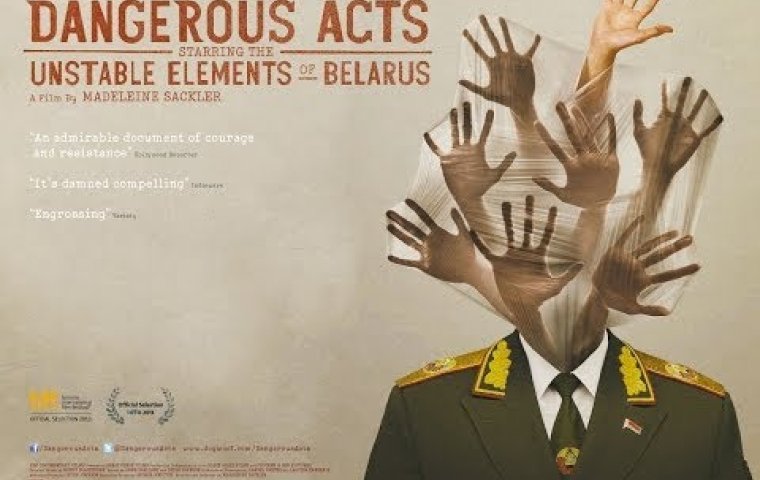Director Madeleine Sackler goes behind the scenes with the Belarus Free Theatre, an acclaimed troupe of imaginative and subversive performers who, in a country choked by censorship and repression, defy Europe's last remaining dictatorship.
Dangerous Acts Starring the Unstable Elements of Belarus

Synopsis
Director Madeleine Sackler goes behind the scenes with the Belarus Free Theatre, an acclaimed troupe of imaginative and subversive performers who, in a country choked by censorship and repression, defy Europe's last remaining dictatorship. Comprised of smuggled footage and uncensored interviews, Dangerous Acts Starring the Unstable Elements of Belarusgives audiences a front row seat to a resistance movement as it unfolds, both on the stage and in the streets. Creating provocative theatre carries great emotional, financial, and artistic risks. For the members of the Belarus Free Theatre, there are additional risks: censorship, imprisonment, and exile. The film picks up in 2010 when the Belarus KGB is cracking down on dissenters, 16 years after Belarus' President Alexander Lukashenko takes power during the break-up of the Soviet Union. Now, as a dubious new presidential election looms, the KGB targets the Free Theatre's founders Nikolai Khalezin and Natalia Koliada who, along with their colleagues, find themselves torn between fighting for their art and for their families' safety.
Belarus is a highly repressive country in which the authorities suppress virtually all forms of dissent and use restrictive legislation and abusive practices to impede freedoms of association, expression, and assembly. Involvement in an unregistered group constitutes a criminal offense, punishable by up to two years in prison. The country's laws provide for a wide range of grounds to deny registration to non-governmental organizations, effectively forcing these groups to function on the margins of the law. Human Rights Watch has documented cases of harassment and intimidation by the authorities of human rights defenders, activists, and defence lawyers. Most media are state-controlled and the authorities harass the few independent journalists and outlets that remain.